Mold Making Services for China Precision Manufacturing
 Dec 17,2024
Dec 17,2024

Molds were introduced in the Bronze Age and have been developing ever since. The advanced manufacturing processes like injection molding, casting or thermoforming all rely on Mold making. But before working on this process, it is important to know the basic of this method along with optimized usage to meet specified requirements. This article will provide a detailed guide on mold making process, how to select molding method and tools, equipment to get optimized results.
What Is Mold Making?
Mold making is a production process of creating specified shapes from molten material by using a pattern and fixed frame called mold. The molten material is poured in a cavity receptable made of metal. The liquid is gone through a chemical reaction or cooling process to get cured and then gets solidified. This is then ejected from mold in that specified shape.
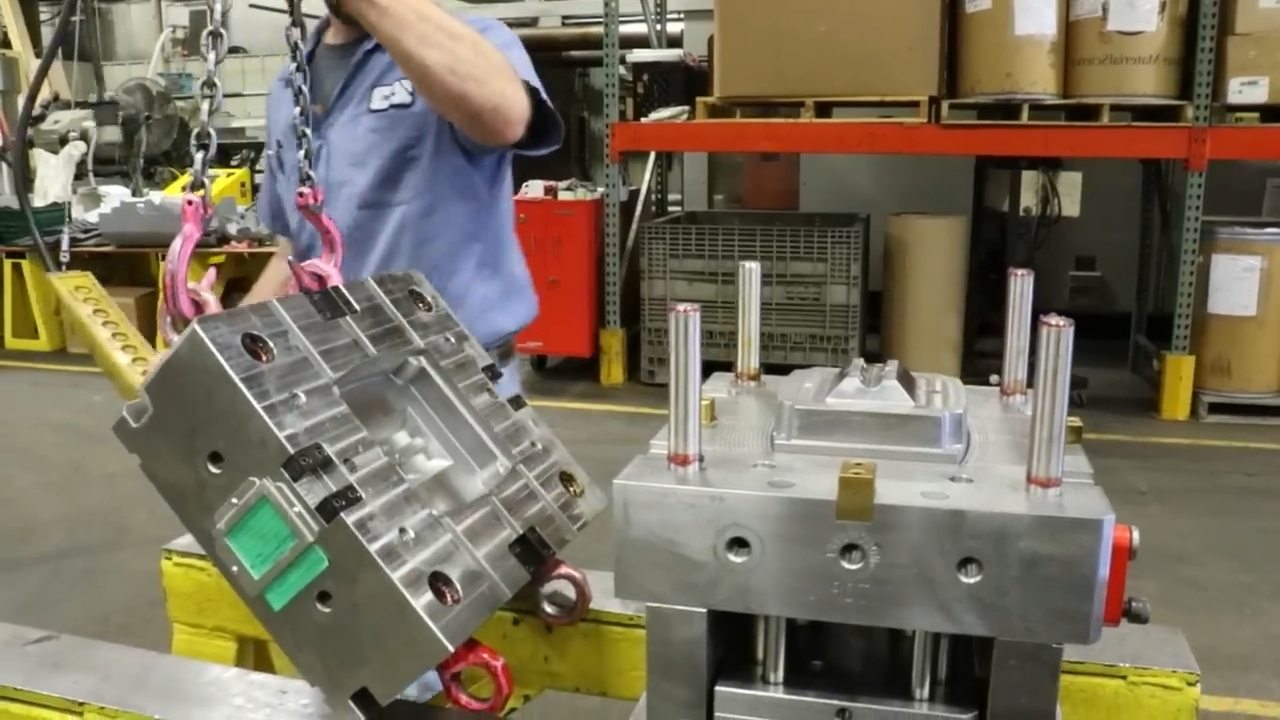
What is Mold Making Used for?
Molds are the important part of production processes. It serves the purpose of reproducing uniform replicas of liquid material from the given mold designs. Metals, plastics, wood, foam, ceramic and other materials are used in mold making. After creating design, mold is fitted into molding equipment. Raw materials are then poured to get solidified and to form final product.
What is a Mold Maker Called?
Mold maker is molder, casting maker or core maker. Mold makers are skilled people normally employed in foundries. They used mold to cast products from metals.
How Much Does It Cost to Have a Mold Made?
Mold making cost depends on the factors like design complexity, production volume, type of material and the production process. If a simple 3D printed mold, it may cost $100, custom silicon Molds are$600-800 and high-volume production can cost up to $100,000.
Why is making mold so expensive?
Mold making can be expensive due to factors like type of materials, material availability, design complexity, initial setup, production volume, quality control, Labor cost, inspection and many more.
Should I Choose Local or Imported Molds?
China is a global hub for mold manufacturing hub, with cost-effective and high-volume production capacity. The cost of mold design depends on design complexity and size of the molded parts. When choosing the molds, consider these factors, design and manufacturing, material source, certification, cost, maintenance, and support
3D Mold Design Services
Tuofa located in Shenzhen, China has 18 years of experience in mold making and CNC machining services.
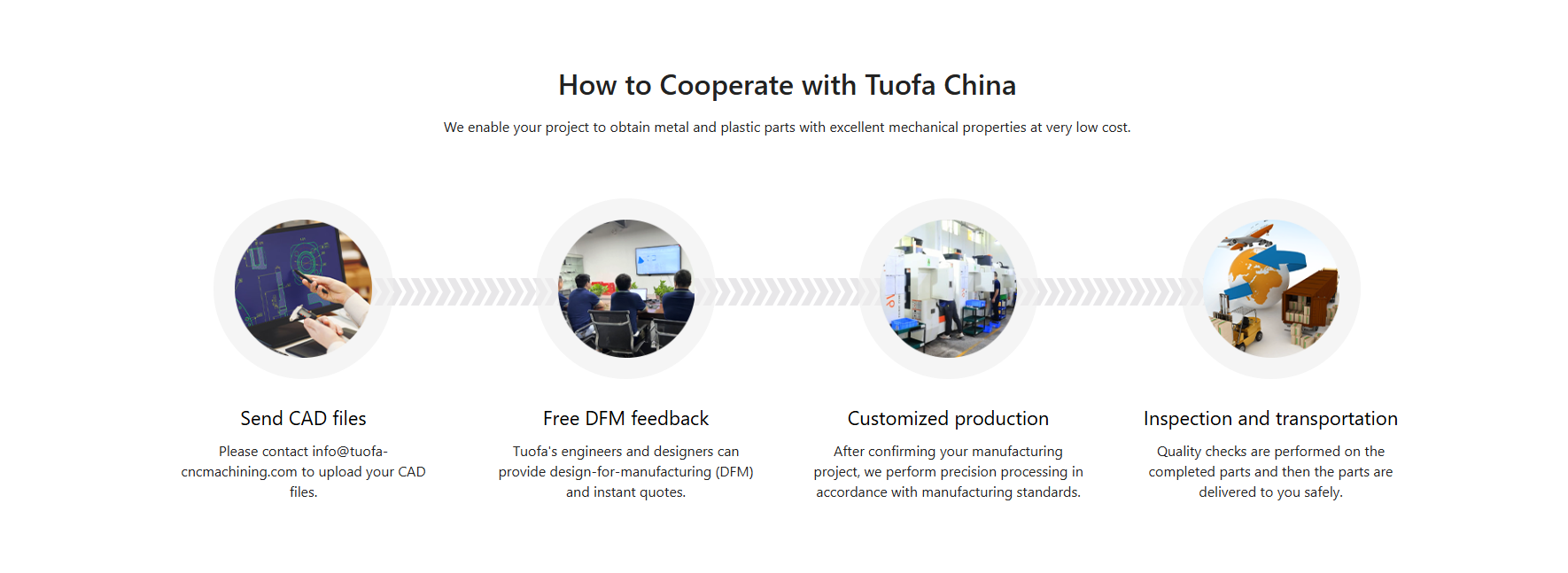
Steps to Create a Mold
Before getting services, you must be known with the steps that service providers follow to get your order done with careful inspection
Start with a Free Quote
Process starts with requesting a quote. if you choose Tuofa, our team will reach you in 6-12 business hours after confirming your quotation. It is to inform you that any information you provide in the quotation will remain confidential and we will complete a disclosure form for your application to avoid any misuse.
From Design to Testing
The services included in mold designing are designing and drawing. Material selection, cost accounting, processing assembling, inspection and quality control
Quickly Turn Concepts into Products
CAD/CAM software for designing and drawing allows faster prototyping. Custom 3D silicon molds provide quality results. It allows complex prototypes production and high-volume production with materials like metals and plastics in a variety of surface finishes.
4 Methods for Metal Mold Making
The common metal mold making methods use sheet metal fabrication, CNC machining, injection molding and casting methods.
Sheet Metal Fabrication for Mold Making
Sheet metal fabrication is molding sheet into specified shape and sizes. It is used to make products from basic to complex machine parts. This process used techniques like cutting bending and folding and assembling. This process can be customized for mass production.
CNC Machining for Precision Mold Making
CNC machining is a very famous production process to create precision molds. These are used in industries like automotive, aerospace, and medical fields to create complex shapes and mold designs. The molded parts have tight tolerance and have highly précised mold dimensions. In mold making the CNC machining techniques used are CNC drilling, CNC grinding and CNC milling etc.
Injection Molding
It is a production process in which molds produced parts through injecting molten material into it. Materials like metals, alloys, plastics and many more can be used in this process
Casting Methods
Metal casting is a 7000-year-old process to convert molten metal into solid product with a definite shape. The casting methods are sand casting, die casting, centrifugal casting, investment casting, permanent mold casting and many more.
Comparing 3D Printing and Injection Molding
Both are very famous methods but still have some limitations along with advantages. 3D printing has design freedom, quick turnaround, suitable for low-production volume, better design complexity and material efficiency. Injection molding is best for large production and later-scale prototypes.
Material Options for Custom Metal Molds
Custom metal molds have a variety of options. Some of them are:
QC7/QC10 Mold Aluminum
These are mold designed options for injection molding. These high-strength aluminum mold plates have high hardness by thickness and can maintain thermal conduction.
Pre-Hardened 4140 Steel
It is a chromium-molybdenum alloy steel and is heat treated to a medium hardness. It has many applications in mold making to make because of high strength and toughness it is normally used to make rotating parts that are subjected to heavy loads.
Tool Steels and Aluminum Copper
Tool steel is a popular choice in making mold because it requires less maintenance, but it is a bit expensive. Aluminum and copper alloys are the best alternative in terms of cost saving and they have high thermal conduction.
Casting Materials for Molds
The casting materials to make molds are silicon, plaster, latex rubber or PU. These are durable, flexible and add fine details in molded parts. Generally, casting rubber is used to make molds
Types of Molds We Provide
Tuofa offers a range of options in mold making to ensure high quality products. These are plastic injection, metal injection, extrusion and dies casting molds:
Plastic Injection Molds
In this process, metal mold is used to create parts from molten plastic. Mold is clamped inside the machine with an injection unit. This unit melts the plastic. Some common plastics that are used are Polypropylene, polycarbonate and thermoplastic polyurethane.
Metal Injection Molds
It is the same as plastic injection molding. It is used in metalworking processes for creating shapes by molten metal. Then, it is solidified into complex molded parts to get desired shape and dimensions.
Die Casting and Investment Casting Molds
Die casting mold is permanent while investment casting molds are disposable. In die casting, mold is made of steel and has two sections that are mounted on the casting setup. In investment casting, wax materials are used to make molds and then it is disposed of after their use. Die casting is suitable for mass production while investment is best for low volume production.
Extrusion and Sheet Metal Molds
Extrusion is a metalworking process in which die is used to shape the molten metal. It is usually used to make pipes, rods and bars. Sheet metal working is the same as the extrusion process is. Metalworking process is used to make anything from sword making to aircraft parts. It is one the most versatile and valuable production process.
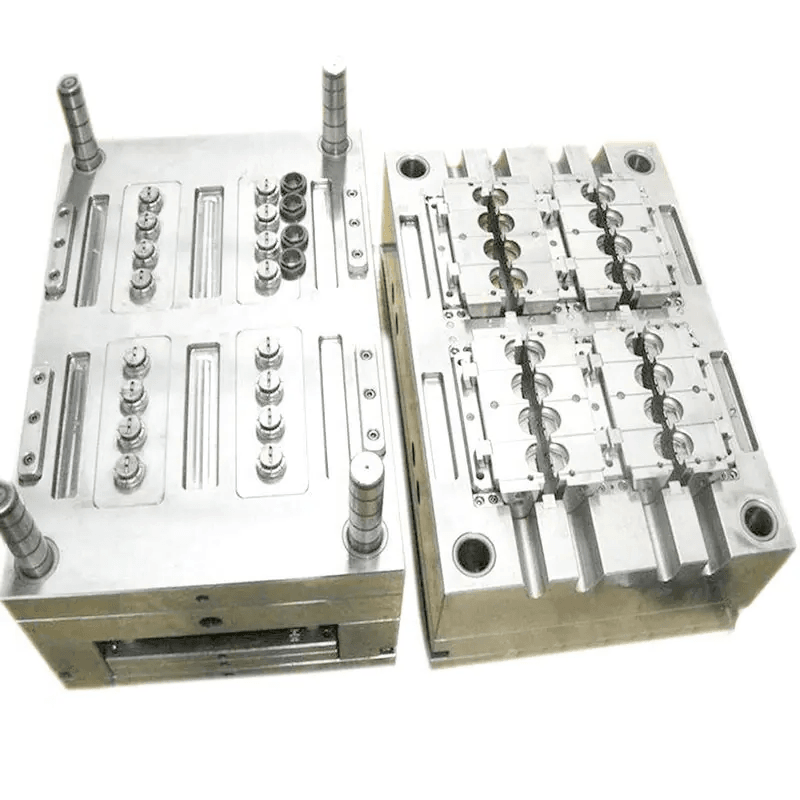
Key Features of Our Mold-Making Services
Tuofa offers one of the best services in mold making in China. Why should you choose our mold making services? The answer is here!
Fast DFM Reports and Prototyping
We offer fast DFM reports and rapid prototyping. For those who are not familiar with these terminologies. Let’s make it clear for you.
DFM stands for Design for Manufacturing. It is an analytical tool that evaluates product design. It ensures how much it is suitable for injection molding.If there is any issue with the design, we will highlight it with the manufacturing problems and eventually this minimizes the complexity and production costs.
Rapid prototyping (RP) is a quick fabrication of models, or assemblies using 3D CAD designs. We thoroughly test and evaluate the mold design before moving into mass production.
Versatility in Mold Applications
Tuofa offers a range of mold design suitable for any industry. For example, you can design molds for jewelry making or for automobile parts, medical tools, aerospace parts, food processing industry and many more. Our mold-making services are flexible and versatile for any field.
Rapid Turnaround Times
Turnaround time depends on the complexity of design and production volume. But Tuofa offers rapid turnaround time, which not only delivers the order on time, but quality of product also is also maintained with post inspection facilities.
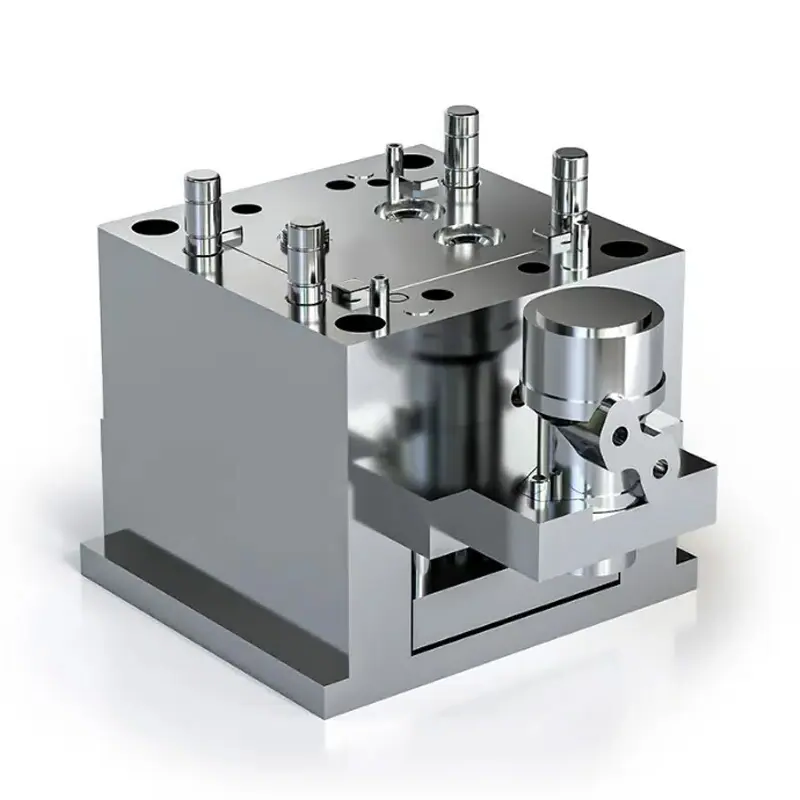
Advanced Molding Capabilities for Diverse Industries
Mold making technology has been evolving since its invention. In the fourth industrial revolution, it has become a massive achievement for engineers and designers.
Hydraulic and Mechanical Molding Machines
Hydraulic machines are an important category of injection molding. machine. It is the main equipment in molding that uses molten plastic to form various shapes. Some advanced machines and technologies are like hybrid injection molding machines which combine hydraulic and electrical injection machines. Micro injection molding, gas-assisted injection molding, overmolding machines along with automation features and software development are one of the recent developments.
Electric and Pneumatic Machines
Electric and Pneumatic machines are different in their power sources and working operations.
Electric molding machines have high-speed servo motor based and digitally controlled power sources. They are faster and more efficient than hydraulic machines. They are automated and have low accident risk and environmental pollution risk. Pneumatic machine uses air pressure to build up tonnage on the clamp side
The Benefits of Choosing Tuofa China Mold Making Service Factory
Cost-Effective Solutions
Our customers prefer us due to cost advantage as compared to other mold making services. Because this significantly lowers your production cost by 70%. It is important for our customers to know that we are always open to discuss and available for your solution.
Reliable Quality Control and Performance Testing
When it comes to quality control and performance testing, we never compromise on that. Tuofa offers thorough quality inspection and performance testing of each product. Our specialized and advanced machines make sure that every product that our client gets is fully functional and works correctly.
The flexible material selection and quality inspection allows parts to have precisely tailored properties meeting your expectations and performance criteria.
Expertise in Short-Run and Mass Production Molds
Tuofa can easily handle bulk orders and can deliver them in a short run without any hesitation. This efficiency is not because of our advanced machines but also relies on our professional engineers and designer, skilled labor and our entire highly qualified workforce.
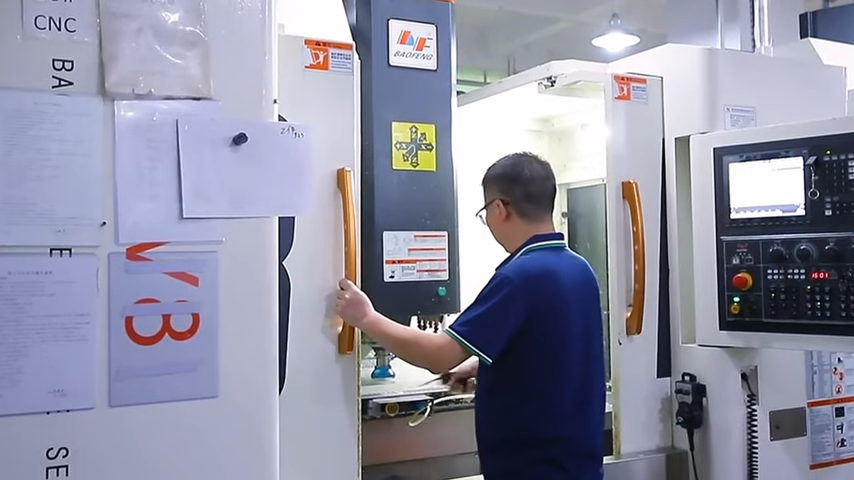
Mold Making Projects That Stand Out
Automotive Component Molds
Tuofa's offers rapid prototyping for automotive parts without any limitations on complexity, production volume, and material selection. We assure you that your prototype parts will have better efficiency and quality.
Precision Reflector Core Molds
We offer high-quality reflector core molds. For those who don’t know about this technology, these molds are for shaping reflective materials that can reflect light. This provides high visibility in low-light situations.
Custom Glass Protect Molds
Toufa offers custom glass protect mold that are fully professional OEM products. It is the best fit for any production plant. We offer the best business offers for one-person mold design business and custom mold making services.
Frequently Asked Questions About Mold Making
When Do I Need a Fully Automatic Mold?
Fully automated molds are required when you need a large production volume, large space for manual loading and unloading of injection molds and complex parts.
How Long Does a Mold Typically Last?
The longevity of mold depends on factors like type of mold, material used, mold condition, environmental conditions, and maintenance. An average mold, the maximum lifespan could be 500,000 cycles.
Are Molds Customizable to Any Shape?
Yes, any mold is customizable to any shape but there are a few limitations of cost, shape and size and design complexity.
 Tel/WeChat:
Tel/WeChat:  Email:
Email: 
 Home
Home
 What Is a Head Gasket and What Does It Do?
What Is a Head Gasket and What Does It Do? 







